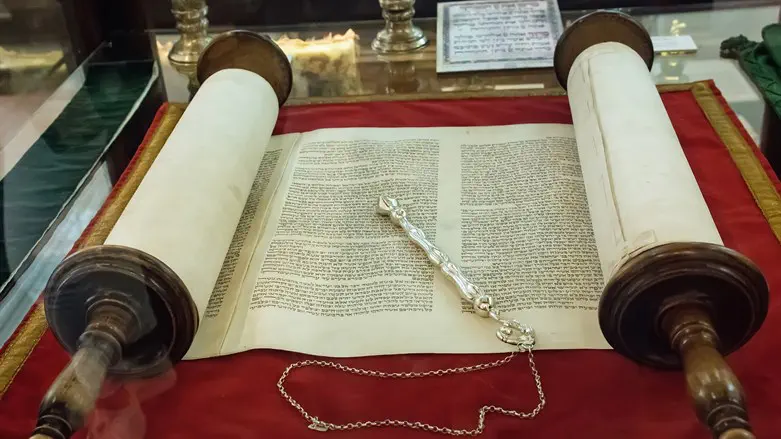
Rabbi Chaim Yosef Karois a former shaliach in Phoenix (2002), currently a community
Shavuot carries a dual symbolism: on the one hand, it is the day of the giving of the Torah—the sublime moment in which a nation of slaves becomes a chosen people; on the other hand, it is a festival of love, of choice, and of deep connection to one’s personal and national identity.
The Sages (Shabbat 88a) described the Sinai experience as one of coercion: "He held the mountain over them like a barrel." How can coercion serve as the foundation for an eternal covenant with God? The answer is hinted at in the verse “We will do and we will hear”: the people accepted the Torah out of trust, not compulsion. According to some commentators (such as the Vilna Gaon and the Maharal), the coercion was not physical but a spiritual experience so overwhelming that it left no room for doubt.
But the Torah is never truly imposed. The Talmud in Tractate Avodah Zarah states that if one studies Torah not for its own sake, it would be better not to study at all. The Torah appeals only to those who choose it, to those ready to let it enter their hearts.
Free Will as the Basis for a Meaningful Life
Rabbi Zadok HaKohen of Lublin writes: “The essence of man’s greatness is that he possesses free choice, and even the Holy One, blessed be He, does not force him.” In other words, human freedom is not merely a right—it is a mission. Every moment in which a person chooses goodness, morality, and holiness continues the Sinai experience within their inner world.
This is not the freedom to do whatever we want, but the freedom to be truly faithful to ourselves. The freedom to choose faith even amidst doubt, to choose love even in difficulty, to choose giving even when tired.
Love and Opening the Heart to the Other
Ruth the Moabite, whose scroll we read on Shavuot, embodies the power of choosing love over alienation. In an era when a non-Jew could not easily join the Jewish people, Ruth deliberately chose to join—not out of external motives, but out of inner conviction. She became the mother of royalty precisely because she chose the other with selfless devotion.
The Midrash praises Ruth for every word she said to Naomi and sees her as a symbol of one who fully accepted the yoke of Torah—not through coercion but through love. This is the Torah of Shavuot: a Torah not given under pressure, but in a whisper that speaks to the heart.
Heart Repair—Anew Every Year
Hasidic thought explains that Shavuot is not only a time of learning but a time of heart repair. A person must ask themselves: am I truly open to receiving the divine voice within me? Am I ready to choose a path that may require breaking old patterns?
As the Sages teach: “Each day the words of Torah should be as new in your eyes.” The giving of the Torah happens every day we choose to open our hearts anew.
Shavuot is a moment of deep personal reflection. It’s not only about what we received, but about how we choose to continue living what we received. The Torah has a voice. The question is whether we are quiet enough to hear it.
We can begin to see Shavuot as a personal opportunity to return to that moment at Sinai within us. To reflect: where do I choose from a place of truth, and where do I act out of appeasement? Where is my love conditional, and where is it present even in hardship? Whom do I reject because they are foreign to me—when they might be a part of me I have not yet embraced?
“Choose life” is not a slogan—it is a profound call. To choose life is to choose to be present, to act with intention, to build real relationships, and not to fear surrender. The giving of the Torah did not happen just once—it continues to happen, every time a person chooses light.
May we merit the light of Torah through a mission to sanctify God’s name and the dignity of humanity.
For comments: hk4u@walla.co.il